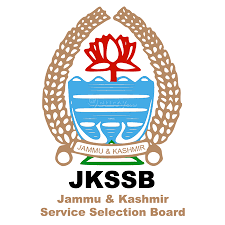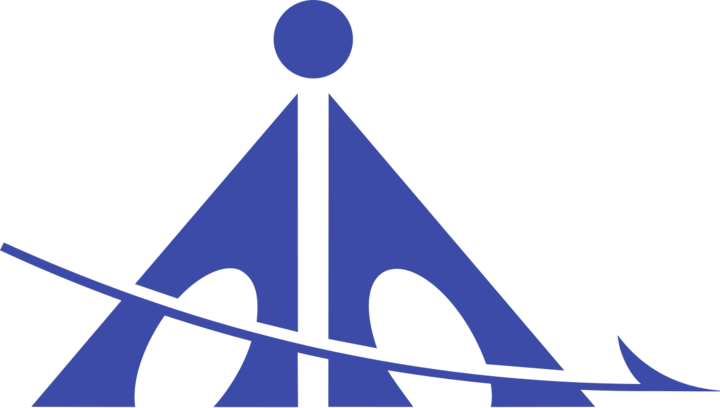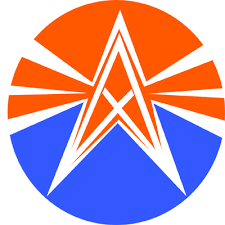JKSSB JE Syllabus is released by the Jammu and Kashmir Staff Selection Board on the official website. Candidates must be well-versed in the JKSSB JE syllabus in order to excel in their preparation. Candidates planning to take this exam should thoroughly review the syllabus as it will help them develop a better understanding of important topics, allowing them to prepare more effectively.
JKSSB JE syllabus PDF is now available for a single objective-type paper. The paper includes a technical subject based on the candidate’s qualifications. Candidates should keep a hard copy of the JKSSB JE 2023 syllabus on hand to track their progress. The direct link to download JKSSB JE Syllabus for civil, mechanical, and electrical has been provided here.
Table of content
JKSSB JE Syllabus 2023
JKSSB JE Syllabus 2023 was released along with the official notification for the position of Junior Engineer. Candidates applying for civil, mechanical, and electrical posts should examine the JKSSB JE Civil, Mechanical, and Electrical syllabus prior to devising their preparation strategy. This will help candidates plan their preparation in the best way possible.
The syllabus for JKSSB JE is subject-specific and will cover key concepts of the candidate’s chosen engineering discipline. JKSSB JE 2023 syllabus includes Diploma/Degree level topics based on the nature of vacant posts. Knowing important topics will make preparation easier. To supplement your knowledge, you can also download the JKSSB JE syllabus PDF, which is provided below.
JKSSB JE Syllabus 2023 PDF (Civil, Mechanical, Electrical)
Candidates can download JKSSB JE syllabus PDF from the official website. However, locating it can be a task. During exam preparation, time is of the essence. Hence, we have provided JKSSB JE syllabus 2023 PDF for all subjects below which consists of the important topics and sub-topics to help candidates scope out their preparation efficiently.
>JKSSB JE Civil Syllabus 2023 PDF
>JKSSB JE Mechanical Syllabus PDF
>JKSSB JE Electrical Syllabus PDF
JKSSB JE Civil Syllabus
JKSSB JE civil syllabus 2023 is quite extensive, with topics ranging from simple to difficult. Candidates who have chosen the civil engineering discipline can access the topic-wise JKSSB JE civil syllabus PDF provided below. This will help candidates ensure that they are only studying important topics and not wasting their time. You can also check the marks assigned to each topic to better prepare.
|
Topic |
JKSSB JE Civil Syllabus |
Marks |
|
Surveying |
Importance of surveying, principles, and classifications, measurements of distance and directions, chain surveying, compass surveying, leveling, tachometer, theodolite, traversing, contouring, plane table surveying, curves. |
10 marks |
|
RCC Structures |
Concrete technology, Ingredients of concrete, water-cement ratio, workability properties of concrete, admixtures, special concretes, Non-destructive tests, basics of mix design. Concrete design-basic working stress and limit state design concepts, analysis of ultimate load capacity, and design of members subjected to flexure, shear, compression, and torsion by limit state methods. Basic elements of prestressed concrete, analysis of beam sections at transfer and service loads, one-way slab, two-way slab |
15 marks |
|
Mechanics and Structural Analysis |
Introduction, Concept of rigid body scalar and vector quantities, laws of forces, moment, friction, the center of gravity, simple machines, torsion, Properties of material, Bending moment, and shear force in statistically determining beams. Simple stress and strain relationship. Stress and strain in two dimensions, principal stresses, stress transformation. Simple bending theory, flexural and shear stresses, unsymmetrical bending, shear center. Thin-walled pressure vessels, uniform torsion, buckling of column, combined and direct bending stresses. Slope and deflection, analysis of trusses. |
15 marks |
|
Soil Mechanics |
Origin of soils, properties, soil classification, three-phase system, fundamental definitions, relationship and interrelationship, the flow of water through soils, permeability & seepage, effective stress principle, deformation of soils, consolidation, compaction, shear strength characteristics, plate load test, SPT, density control, Measurement of field density by core cutter and sand replacement method, soil exploration, bearing capacity and its methods |
10 marks |
|
Irrigation Engineering |
Introduction, the water requirement of crops, hydrological cycle, Dams, Canals, dams, canal headworks, and regulatory works, cross drainage works, hydraulic structures, river training works, water-logging, drainage, groundwater recharge, well hydraulics |
10 marks |
|
Fluid Mechanics and Hydraulics |
Properties of fluids, hydrostatic pressure, measurement of pressure, flow measurements, flow through pipes, flow through open channels, hydraulic pumps, the principle of conservation of mass, momentum, energy and corresponding equations, potential flow, applications of momentum, and Bernoulli’s equation, laminar and turbulent flow, flow in pipes, pipe networks. Concept of boundary layer and its growth. Uniform flow, critical flow and, gradually varied flow in channels, specific energy concept, hydraulic jump Forces on immersed bodies, flow measurements in channels, tanks, and pipes. Dimensional analysis and hydraulic modeling Kinematics of flow. |
15 marks |
|
Water supply and wastewater Engineering |
Introduction, the quantity of water, quality of water, water treatment, conveyance of water, laying out of pipes, Building water supply, water supply fixtures, and installation, plumbing, sewerage system, laying and construction of sewers, sewage characteristics, Methods of disposal, sewage treatment, building drainage, air, and noise pollution |
10 marks |
|
Highway Engineering |
History of the development of highway and planning, Definitions of various terms used in highway engineering., Methods of road construction, IRC classification, Highway surveys and plans Geometric design, Different types of road materials in use, Binders, Types of pavement, CBR method, subgrade preparation, WBM, WMM, Bituminous Macadam, dense bituminous macadam, special problems in hill road |
10 marks |
|
Railway Engineering |
History of Indian railways, Gauges used, the permanent way its components, Types of rails, creep, welding, Rail fixtures and fastenings, Signaling, Points and Crossings, Bridge terminology, classification, components, foundations. |
10 marks |
|
Constructional Planning Management |
Network diagrams, PERT-CPM, cost optimization contracts, tenders, depreciation, valuation, organization, measurement books, cash book, functions of management, construction planning, quality control, inventory control, Estimation and costing definitions, methods of estimation, and type of estimates |
15 marks |
Check: JKSSB JE Salary
JKSSB JE Mechanical Syllabus
JKSSB Mechanical JE syllabus has few subjects but many topics and sub-topics. Understanding the syllabus can be a difficult task, which is why we have listed all of the important topics below. Candidates preparing for the exam should thoroughly review the JKSSB JE Mechanical syllabus PDF to understand the important topics that will earn them the most marks.
|
Topic |
JKSSB JE Mechanical Syllabus |
Marks |
|
Theory of Machines and Machine Design |
Four bar linkage and link motion, Flywheels and fluctuation of energy, Power transmission by belts-V-belts, and Flat belts. Gears-Type of gears, gear profile, and gear ratio calculation. Cams. Governors-Principles, and classification. Design of keys, shafts, Riveted joint, couplings |
15 marks |
|
Thermal Engineering and Refrigeration & Air-conditioning |
Thermodynamics: Heat, work, and temperature, First and second laws of thermodynamics. Carnot, Rankine, Otto and Diesel Cycles. P-v & P-T diagrams H2O. Saturated, wet & superheated steam. Definition of dryness fraction of steam, degree of superheat of steam. Rankine cycle of steam: Simple Rankine cycle, plot on P-V, T-S, h-s planes, Rankine cycle efficiency with & without pump work. Concept of COP, Carnot Cycle, Vapour compression cycle. Refrigerants. Psychometry, DBT, WBT, DPT. |
20 marks |
|
Engineering Mechanics and Strength of Materials |
Laws of forces, Equilibrium of Forces, Moment of Inertia, Laws of motion. Friction. Concept of simple machines, M A, V R, %age. Concepts of stress and strain, Elastic limit, and elastic constants. Bending moments and shear force diagram. Stress in composite bars. Torsion in circular shafts. Columns: Euler’s and Rankine’s theories. Thin-walled pressure vessels. |
15 marks |
|
Fluid Mechanics & Machinery |
Properties & Classification of Fluids, Newton’s law of viscosity, Fluid Statics, Measurement of Fluid Pressure by Manometers, U-tube, Inclined tube. Fluid Kinematics: Streamline, laminar & turbulent flow, external & internal flow, continuity equation. Dynamics of ideal fluids: Bernoulli’s equation, Total head; Velocity head; Pressure head. Measurement of Flow rate, Basic Principles & working of Venturimeter, Pitot tube, Orifice meter. Hydraulic Turbines & Centrifugal Pumps |
15 marks |
|
Material Science & Production Engineering |
Structure of metals, Space lattice, Unit cell, BCC, FCC, etc, Iron carbon diagram, Classification of Steels: mild steel & alloy steel. Heat treatment of steel. Welding – Arc Welding, Gas Welding, Resistance Welding, Special Welding Techniques i.e. TIG, MIG. Brazing & Soldering, Welding Defects & Testing. Foundry & Casting methods, defects, different casting processes. Forging, Extrusion, etc. Metal cutting principles, cutting tools. Basic Principles of machining with Lathe, Milling, Drilling, Shaping, Grinding. Machine tools & manufacturing processes. |
20 marks |
|
Industrial Management and CAD/CAM |
Planning, Organizing, Leading, Controlling. Inventory Control, Inspection & Quality Control. Basic concepts of CAD/CAM. NC, DNC, CNC machines. |
20 marks |
|
Metrology and Automobile Engineering |
Tools used in Linear Measurements, Angular Measurement, Surface finish. Limits, fits & Tolerance, Error, Classification of Automobiles. Transmission, Steering, Braking, Suspension system. IC Engine Performance, IC Engine Combustion process, Cooling, and Lubrication system in I.C Engine |
15 marks |
Check: JKSSB JE Selection Process
JKSSB JE Electrical Syllabus
JKSSB JE electrical syllabus has various topics from the diploma/graduation level which require dedicated study time. Hence, knowing exactly what to study is of utmost importance to cover the most syllabus in the least time. Below, we have provided all the important topics along with the weightage to ensure candidates are able to prepare in a way which will allow them to score the maximum marks possible,
|
Topic |
JKSSB JE Syllabus for Electrical Engineering |
Marks |
|
Electrical Circuits and Fields |
Basic concepts: Concepts of resistance, inductance, capacitance and various factors affecting them, Circuit laws: ohm’s law KCL, KVL, node and mesh analysis, resonance, ideal current and voltage sources, Source conversions Thevenin’s, Norton’s and Superposition and Maximum Power Transfer theorems, Simple Circuit solution using network theorems. Three-phase circuits; Ampere’s and Biot-Savart’s laws; inductance; dielectrics; capacitance. |
15 marks |
|
Electrical and Electronic Measurements |
Bridges and potentiometers; PMMC, moving iron, dynamometer, and induction type instruments; Extension of range, measurement of voltage, current, power, energy and power factor; instrument transformers; digital voltmeters and multimeters; phase, time and frequency measurement; Q-meters; oscilloscopes. Transducers: measurement of displacement, flow, and temperature, Megger. Measurements of active and reactive power, Measurement of Energy. |
15 marks |
|
Control Systems |
Basic control system components; block diagrammatic description, reduction of block diagrams. Open-loop and closed-loop (feedback) systems and stability analysis of these systems. |
10 marks |
|
Electronic Devices and Circuits |
Energy bands in silicon, intrinsic and extrinsic silicon. Carrier transport in silicon: diffusion current, drift current, mobility, and resistivity. p-n junction diode, Zener diode, tunnel diode, BJT, JFET, MOS capacitor, MOSFET, LED, avalanche photodiode. Small Signal Equivalent circuits of diodes, BJTs, MOSFETs. Simple diode circuits, clipping, clamping, rectifier. Biasing and bias stability of transistor and FET amplifiers. Single-and multi-stage, tuned voltage, operational, feedback, and power amplifiers. Frequency response of amplifiers. Simple op-amp circuits. Filters. Sinusoidal oscillators; criterion for oscillation; single-transistor and op-amp configurations. Function generators and wave-shaping circuits, 555 Timers IC and its applications. Power supplies |
10 marks |
|
Digital Electronics and Microprocessor |
Number systems: Binary, decimal, octal, hexadecimal, BCD number systems and their conversions, Binary and hexadecimal addition, subtraction multiplication,1’s and 2’s complement methods of addition/subtraction. Boolean algebra, minimization of Boolean functions; logic gates; digital IC families (DTL, TTL, ECL, MOS, CMOS). Combinatorial circuits: arithmetic circuits, code converters, multiplexers, decoders, PROMs. Sequential circuits: latches and flip-flops, counters, and shift registers. ADCs, DACs. Semiconductor memories. Microprocessor (8085): architecture, instruction set, programming, memory, and I/O interfacing. Study of peripheral chips-8251,8155, 8257,8259 |
10 marks |
|
Power Electronics and Drives |
Semiconductor power diodes, transistors, thyristors, and MOSFETs – static characteristics and principles of operation; triggering circuits; phase control rectifiers; bridge converters – fully controlled and half controlled; Choppers and Inverters; concepts of adjustable speed dc and ac drives. |
10 marks |
|
Power Systems |
Basic power generation concepts; transmission line models and performance; cable performance, insulation; corona and radio interference; distribution systems; power factor correction; economic operation; symmetrical components; principles of over-current, differential and distance protection; Generator, feeder, transformer, and bus-bar protection, Lightning protection; solid-state relays and circuit breakers; Sub-Station Practices, Load frequency control, Tariffs, Earthing. The utilization of Electrical energy: Illumination, electrical heating, and welding, electroplating. |
25 marks |
|
Electrical Machines |
Single-phase transformer – equivalent circuit, phasor diagram, tests, regulation, and efficiency; three-phase transformers – connections, parallel operation; autotransformer, Energy conversion principles, Electro-mechanical energy conversion; DC machines–types, windings, generator characteristics, armature reaction, and commutation, starting and speed control of motors; three-phase induction motors– principles, types, performance characteristics, starting and speed control; single-phase induction motors; synchronous machines – performance, regulation and parallel operation of generators, motor starting, characteristics and applications; servo and stepper motors. Braking of DC and AC motors |
25 marks |
Check: JKSSB JE Cutoff
JKSSB JE Exam Pattern
Before preparing JKSSB JE syllabus, candidates must also be aware of the exam pattern. JKSSB JE exam pattern is crucial to planning your preparation in an efficient manner. It is the pattern on which question paper will be designed, hence, knowing it will help you navigate it better on exam day. Check out the JKSSB JE exam pattern for the written exam below.
- The selection of the candidates will be made based on the written exam.
- The exam will have objective-type questions.
- The exam will be for 120 minutes.
- JKSSB JE total marks are 120 marks.
- Candidates will be awarded 1 mark for each correct answer.
- JKSSB JE exam has negative marking of 0.25 marks for each incorrect answer.
- The total time duration is 2 hours.
|
Subject |
Questions |
Marks |
Type |
Duration |
|
Technical (Civil/Mechanical/Electrical Engineering) |
120 |
120 |
Objective type |
2 hours |
Preparation Books for JKSSB JE Syllabus
Preparing JKSSB JE syllabus efficiently is the most important thing. There are various sources you can use to prepare, however, one of the most reliable sources you can use is JKSSB JE preparation books. These books are designed specifically for the purpose of competitive exams and will provide you with in-depth explanations and practice questions. Check out the list of important JKSSB JE books below to prepare in the best manner.
|
Subject |
JKSSB JE Book Name |
Author/ Publication |
|
JKSSB JE Civil Books |
Objective Civil Engineering |
GKP |
|
Civil Engineering Objective Book |
Gupta and Gupta |
|
|
Civil Engineering: Conventional and Objective Type |
Khurmi R.S |
|
|
Textbook of Surveying |
C Venkatramaiah |
|
|
Soil Mechanics And Foundation Engineering |
K. R. Arora |
|
|
JKSSB JE Mechanical Books |
Mechanical Engineering |
Khurmi R.S |
|
Objective Mechanical Engineering |
GKP |
|
|
Mechanical Engineering Objective type |
D.Handa, H.B Keswani. |
|
|
Engineering Mechanics: Statics & Dynamics |
Anil Kumar Dhiman |
|
|
Materials Science And Engineering |
I P Singh |
|
|
JKSSB JE Electrical Books |
Electric Circuits And Fields |
Harold Pender |
|
Electrical and Electronics Measurements and Instrumentation |
Prithwiraj Purkait |
|
|
Objective Electronics Engineering |
Arihant Experts |
|
|
Control Systems: Principles and Design |
M Gopal |
|
|
Electric Machines |
D.P. Kothari |

 Install
App
Install
App


